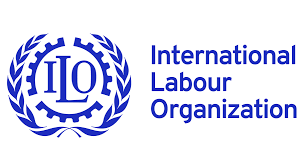Federal Government says it has commenced preliminary activities for the ratification of four key conventions of the International Labour Organisation (ILO) that would promote and bolster Labour Administration in Nigeria.
Minister of Labour and Employment, Mr Chris Ngige, said in his goodwill message at the ongoing Sub-Regional Workshop on COVID-19 and Socio-Economic Recovery in West Africa, organised by the Organisation of Trade Unions of West Africa (OTUWA) on Tuesday in Abuja.
Ngige who recounted the numerous efforts of the federal government to contain the spread of COVID-19 pandemic, lamented that it has profoundly hit hard and affected the world of work, especially in the informal sector.
He added that in addition to the threat to public health, the economic and social disruptions threaten the long-term livelihoods and wellbeing of millions of workers.
The minister, however said the proposed ratification of the ILO conventions was part of the programmes developed by the federal government to secure the future of work in Nigeria.
“The pandemic has accelerated the future of work realities such as unemployment, underemployment, inactivity, decline in income, diminished labour and business income, enterprise closures, bankruptcies, loss of workforce population, upsurge of workplace hazards.
”These are challenges to occupational safety and health, outright loss of livelihood, increased gender and economic inequalities, increased work from home and the inherent challenges that come with remote work.
“These crises affected the most disadvantaged and vulnerable disproportionately, particularly individuals in the informal economy and in insecure forms of work,”he said.
Ngige also said the ILO in its typical and proactive ways, responded to the pandemic by devising a model for economic recovery for its member states.
He recalled that in the spirit and tenets of its Centenary Declaration for the Future of Work, which was adopted in 2019, the ILO called to action for a human-centred recovery from the COVID-19 and propagated a four-pillar policy framework, based on international labour standards.
He therefore, identified the four-pillar policy as stimulating the economy and employment, supporting enterprises, jobs and incomes, protecting workers in the workplace, and relying on social dialogue for solutions.
“Nigeria was mindful of these pillars which were mentioned and supported in my 2020 May Day Speech to workers and in Mr President’s speech during the inauguration of the National Labour Advisory Council (NLAC) held in Owerri, Imo State on March 23, 2021.
“We also put in a Bipartite Committee comprising the two Federations of Trade Unions and Government representatives to engage in social dialogue on contemporary issue and arrive at Social Pacts or Social Concertation.
“As previously stated, the ILO advocated a recovery that is inclusive, sustainable and resilient and has recognised the fact that without concerted action by governments, employers’ and workers’ organisations, and the international community, the differential effects induced by the pandemic on the world of work would endure well beyond the pandemic itself.
”This is with profound implications for the achievement of social justice and decent work for all, including full, productive and freely chosen employment,”Ngige said.
He added that the ILO approach is focused on human-centred recovery that is inclusive, sustainable and resilient through the development of policies and interventions.
He said this was aimed at inclusive economic growth and employment, protection of all workers, universal social protection and social dialogue.
He further said that the federal government had already keyed into most of the interventions and was developing programmes to ensure that the Future of Work in Nigeria is secured.
”The ministry has set in place the machinery and commenced preliminary activities towards the ratification of four key ILO Conventions that will promote and bolster Labour Administration in Nigeria.
“Furthermore, capacity building of professional officers in the ministry on the ILO Centenary Declaration, the Human-centred Approach Recovery to COVID-19 and Nigeria’s Future of Work Report has commenced.
”This is to ensure that Labour Inspectors are abreast with the current realities and apply international best practice in the discharge of their duties,” he said.
The Minister said most recently, the ministry also flagged-off skill acquisition training and empowerment programmes across the Geo-political Zones of the country.
He said workers working from home were still paid their full salaries and there was no retrenchment of any worker in the public sector.
He added that the private sector employers were also prevailed upon to view retrenchment as a “no go” area but to adopt social dialogue to forge a new social pact for workers to waive some allowances.
Earlier in an address, the President of OTUWA, Mademba Sock, noted that their members, especially those working in the private sector of the economy have been badly hit by the pandemic.
According to Sock, in the absence of universal social security in most member states, a number of those in employment in the private sector were either laid off or had their number and benefits drastically reduced.
The OTUWA boss said they were interested in the labour market indicators that would enhance the growth and full benefits of not just the economy but the wellbeing of their members.
He said the workshop was planned to enable them to gather relevant information on the recovery programmes of the respective governments of ECOWAS sub-region in order to engage national governments effectively and productively.




